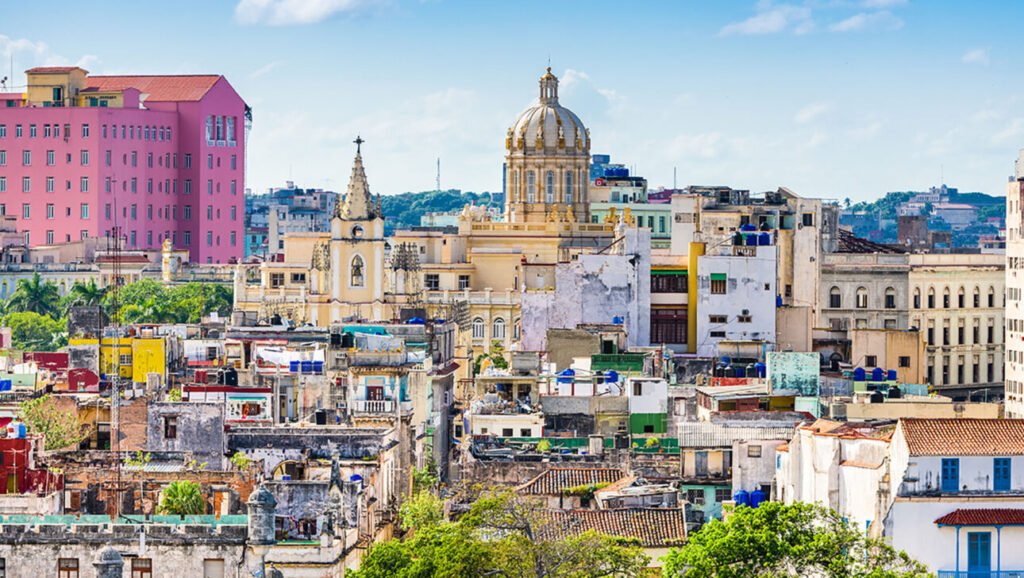Cuba is a visually stunning Caribbean destination, known for its cigars, music, vintage cars, and colorful mansions. However, beneath the surface beauty lies a country that is different from its neighboring nations due to Communist rule and outdated social systems, which can make travel here challenging and frustrating.
While Cuba was once accessible primarily through beach resorts and nearby cities, it has opened up for tourism across the entire island for quite some time. It is a place that will captivate you and is often considered the most intriguing destination in the Caribbean. However, beyond the typical tourist experiences like cruise ship excursions and resort holidays, traveling requires preparation and willingness to delve deeper.
To navigate the challenges and make the most of your trip, it’s important to be well-prepared with insider tips and reliable travel information. These insights come from firsthand experience, having spent a month traveling throughout the country.
As you explore extensively, you’ll realize that the need for change in Cuba is more significant than the rush of tourists trying to visit before potential changes occur, especially following the recent death of Fidel Castro.
Best time to visit
The optimal time to visit is during the dry season, which typically spans from November to April. During this period, you can expect sunny weather and less rainfall. On the other hand, the wet season from May to October experiences heavier rains and is prone to hurricanes. It is important to stay updated with weather forecasts and track any approaching storms if you plan to visit during this time.
Personally, I traveled to Cuba in December, which marked the beginning of the dry season. While we enjoyed many days filled with sunshine, there were occasional short-lived rain showers, which is characteristic of Cuba’s sub-tropical climate.
Getting a tourist visa to visit Cuba
Before traveling, it is important to understand the process of obtaining a tourist visa. Here are some steps to consider:
- Check with the Airline: In many cases, a tourist visa for Cuba is included in the price of your flight ticket. Prior to departure, contact your travel agent or airline to confirm whether a visa is already provided. They will be able to provide you with the necessary information.
- Visa from the Embassy: As a precautionary measure, you can also obtain a Cuba visa from the embassy or consulate of Cuba in your home country. This may require submitting an application, providing the required documents, and paying a visa fee. It is advisable to check the specific requirements and procedures of the Cuban embassy or consulate in your country.
Personal Experience: For instance, when I traveled with WestJet from Toronto, a visa slip was provided to me free of charge as part of the flight package. However, as an extra precaution, I obtained a Cuba visa from the Cuban embassy in London before my trip. This required paying a fee of £15.
It is always recommended to check the most up-to-date visa requirements and procedures with the relevant authorities or your travel agent before your trip to ensure a smooth travel experience.
Travel Insurance
In early 2010, the Cuban government implemented a requirement stating that all foreign visitors entering Cuba must have travel insurance that covers the entire duration of their trip. While I personally was not asked to provide proof of insurance upon arrival, it is important to note that this requirement exists. It is strongly advised not to travel to Cuba without travel insurance.
When selecting a travel insurance policy, it is essential to review the terms and conditions, especially the fine print, as some policies may not provide coverage for Cuba. Keep in mind that medical assistance can be expensive, so having adequate insurance coverage is crucial.
During my trip, I carried a printed copy of my travel insurance documents as a precautionary measure, even though it was not requested. It is recommended to do the same to ensure compliance with the Cuban government’s regulations and to have the necessary documentation in case it is needed.
Airport Departure Tax
Upon departing Cuba, it is important to remember to set aside 25 CUC ($25) for the Airport Departure Tax. This tax is to be paid to the officials at passport control as they stamp your passport and process your exit from the country. Make sure to have this amount readily available to avoid any inconvenience or delays during your departure.







